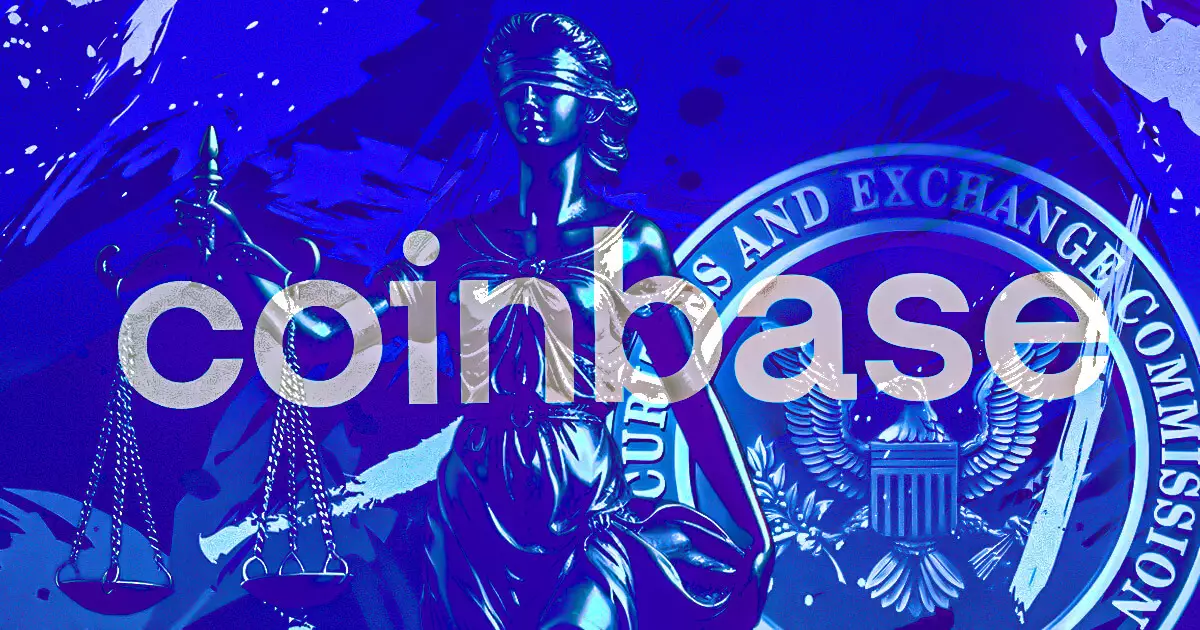In a significant development for the cryptocurrency sector, Coinbase has reached an agreement with the Securities and Exchange Commission (SEC) that may pave the way for a more stable regulatory environment. This settlement, which awaits final approval from the Commission, has resulted in Bitcoin prices surging back above $99,000, marking a moment of optimism for investors and enthusiasts alike. The agreement symbolizes not just a victory for Coinbase but possibly a turning point in the relationship between crypto firms and federal regulators.
The legal battle commenced when the SEC attempted to enforce its authority by pushing for the delisting of certain cryptocurrencies that Coinbase argued were not securities. This conflict raised fundamental questions regarding the SEC’s jurisdiction and the classification of digital assets. Brian Armstrong, the CEO of Coinbase, has been vocal about his stance, asserting that the SEC’s efforts went beyond its legal boundaries. He emphasized that the implications of this litigation are far-reaching and extend beyond the fate of a single company; they address the broader context of how cryptocurrencies should be understood and governed under U.S. law.
In his remarks, Armstrong indicated that the resolution could materialize in the coming week, leading to a complete dismissal of the case without any financial penalties or operational changes imposed on Coinbase. This potential resolution is critical, as it enables the company to continue its operations without the looming threat of regulatory pushback, thereby providing a much-needed reprieve for the organization and its stakeholders.
The dismissal of the SEC’s case not only reaffirms Coinbase’s business model but also sets a precedent for how regulatory bodies interact with digital asset companies. Armstrong has highlighted that this legal victory reasserts the importance of adhering to established laws rather than navigating the murky waters of regulatory interpretations. The outcome encourages other firms within the crypto industry to challenge overreaching regulatory practices.
Interestingly, Armstrong’s comments also extended to express gratitude towards previous administrations, particularly the Trump administration, for their influence in reshaping crypto regulations. His social media posts indicated that the transition away from a more confrontational SEC leadership might have contributed to the current resolution, underscoring the role that political dynamics play in regulatory actions.
As Coinbase continues to solidify its position, the broader implications of this disagreement point to a need for clearer regulatory frameworks governing the cryptocurrency market. The settlement serves as a beacon for other enterprises facing similar challenges from the SEC. For many in the industry, the absence of clear guidelines has led to uncertainty, hindering innovation and growth.
The evolving landscape calls for legislation that can provide a balanced approach, protecting consumers while simultaneously nurturing technological advancement. The dialogue that this case has sparked highlights the ongoing negotiations between regulators and crypto companies, suggesting that a more collaborative approach may be necessary for future developments.
The Coinbase-SEC agreement also signals a potential restoration of trust between cryptocurrency stakeholders and regulatory authorities. As market players begin to digest the ramifications of this resolution, it is essential for regulators to consider the implications of overly aggressive enforcement actions. There is a growing consensus that regulatory practices must be recalibrated to recognize the unique characteristics of digital assets without stifling innovation.
While the resolution of Coinbase’s case with the SEC may not eliminate all ambiguities surrounding cryptocurrency regulations, it certainly marks a pivotal moment in the ongoing struggle for clarity in this burgeoning sector. The final approval of the settlement could act as a catalyst for future legislation and enforcement practices that prioritize both innovation and investor protection. As the crypto industry continues to evolve, stakeholders must remain engaged in constructive dialogue to foster an environment conducive to sustainable growth.
















Leave a Reply